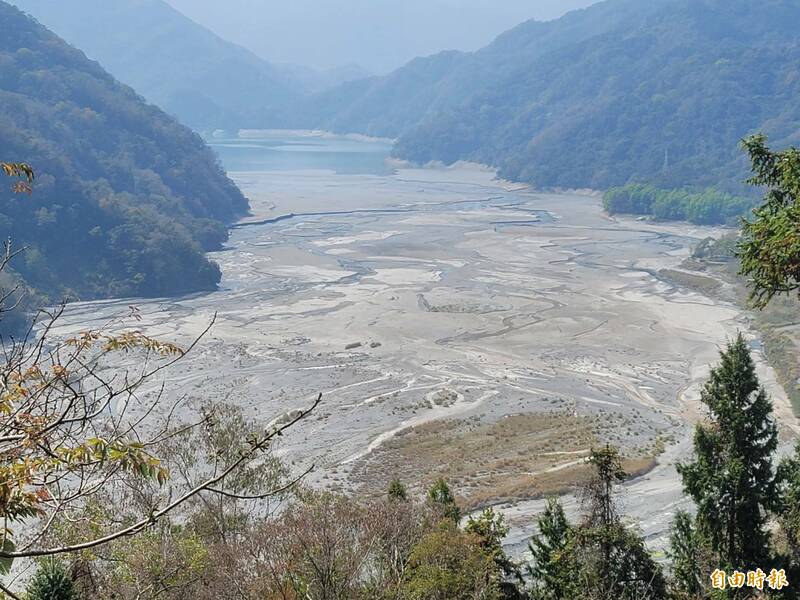The water storage rate of the Wushe Reservoir in Ren'ai Township is only 18%, and a large area of silt is exposed, turning the reservoir into a small pool.
(Photo by reporter Tong Zhenguo)
[Reporter Tong Zhenguo/Report from Nantou] After a long drought and no rain, the water storage rate of the Wushe Reservoir in Renai Township, Nantou County is only 18%, and a serious red light is on. Spring tea at medium and high altitudes in the township is sprouting one after another, and it needs rain to nourish it. The rainfall in April is still not ideal, and farmers' associations and tea farmers are worried that this year's spring tea production may be greatly reduced.
Since the beginning of winter last year, the number of rainy days and the amount of rainfall in the central and southern regions have been less, and the water storage capacity of the reservoir has continued to decline since February. Today (18th) the water level of the Wushe Reservoir dropped to 989.36 meters, and the effective water storage capacity was 6.91 million cubic meters , the water storage rate was left at 18%, and the red light was turned on to indicate that the water situation was severe, revealing a large area of silt, and the reservoir became a small pool.
Please read on...
In addition to the reservoirs waiting to quench their thirst, the spring tea germination period at middle and high altitudes has entered the period of long drought and no rain, and it is inevitable that the production of spring tea will decrease. Dai Jinren, the director-general of the Renai Township Farmers Association, said that the current mid-altitude tea areas are in the budding period, and the drought continues The growth of tea buds has been affected, and the leaves are not large. Higher altitude tea areas are currently in a critical period. If the rainfall is still not ideal from late March to early April, this year's spring tea production may be severely reduced. As for short-term vegetables due to lack of water The impact of farmers' plowing period will be delayed, which will affect the supply of vegetables throughout the year.
Tea farmers said helplessly that they could only try their best to find irrigation water sources, which would require more manpower and equipment costs. However, after all, sprinkler irrigation is still not comprehensive, and rain is still needed, and continuous rainfall will help the agricultural situation.
The mid-to-high altitude spring tea in Renai Township has entered the budding stage one after another, and it needs spring rain to nourish it, otherwise it will affect the growth of leaves.
(Photo by reporter Tong Zhenguo)
